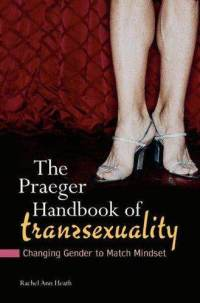Serendip is an independent site partnering with faculty at multiple colleges and universities around the world. Happy exploring!
Building Relationships

Imagine Africa Field Trip Reflection: Healing & an Unforgettable Experience
I have three words: What. A. Week!!!!!!!!!!!!!!!! There are so many things that I want to blog about but I will stick to my incredible experience at the Imagine Africa Exhibit at the UPenn Museum. I’ll do it in two parts:
Part I: I really enjoyed the field trip with the high school teenagers—I don’t think the trip would have been the same without them. My favorite part of the museum was the exhibit that allowed us to “create” Africa or, better yet, to reveal the many “stories” of Africa. Aside from the fact that the exhibit was limiting because you could only “imagine” Africa with the images/words/media clips available, I felt empowered. I felt empowered in the sense that I had the ability to determine whether or not I wanted Africa to be described as “beautiful” vs. “Unique” or “Modern” vs. “Rural.” Of course, Africa can embody both components but having a say in what Africa meant to me instead of having someone impose their views on Africa, particularly in education settings, on me was a powerful moment. My group happened to have the word, “healing.” And although, initially, we thought that there was no healing in the world, or very little, seeing the high school sophomores excited at the chance to define Africa and to make meaning out of her history was healing happening right before my eyes.
Hello!
Hello! My name is Laura James. I was born in Atlanta, Georgia but for the past four years I have been living in Dubai. Dubai is a city in the United Arab Emirates which borders Saudi Arabia and Oman. I moved there because my dad is a pilot with Emirates. Living in Dubai was the best experience I have had. When I am finished with school I might move back to Dubai or another part of the Middle East or Africa. From this seminar I am looking strengthen my writing skills and learn more about the struggles that different classes have. I am especially interested in the disparities between schools across classes. The issues I noticed in our first class discussion that most of us were nervous about giving ourselves categories that we had no control over. Absolutely no one categorized themselves in an economic class or race and very few people categorized themselves by gender or size. Though, it was good that as individuals we cared more about what was “on the inside” it nonetheless displayed our fear of that type of classification.

Chorost & a Continuation of Teknolust
Our in class conversation on Monday with author Michael Chorost's skype was certainly dynamic. Although I enjoyed the topics discussed, I found that at one point I asked the wrong question and didn't get the more appropriate one across. If I could get the chance to speak with Chorost again, I'd ask him the following:
Introduction
Hello! My name is Kati Zaylor, and I am new to Serendip, Professor Grobstein, and Professor Dalke. Therefore I am excited and intrigued about this course and learning more about evolution, biology, and literature. I am a senior and a Theater major, and so I approach this course with a relatively open mind about the way the universe operates. Because I don't understand most science, I am not constrained within the limits of what is and what isn't, and feel as though there are many possibilities and unknowns to the universe. I respect some limits of science, but I will continue to verbally oppose trying to define the undefinable and declaring what is or isn't at times when humans have no place to do so. For example, "The universe doesn't evolve.




